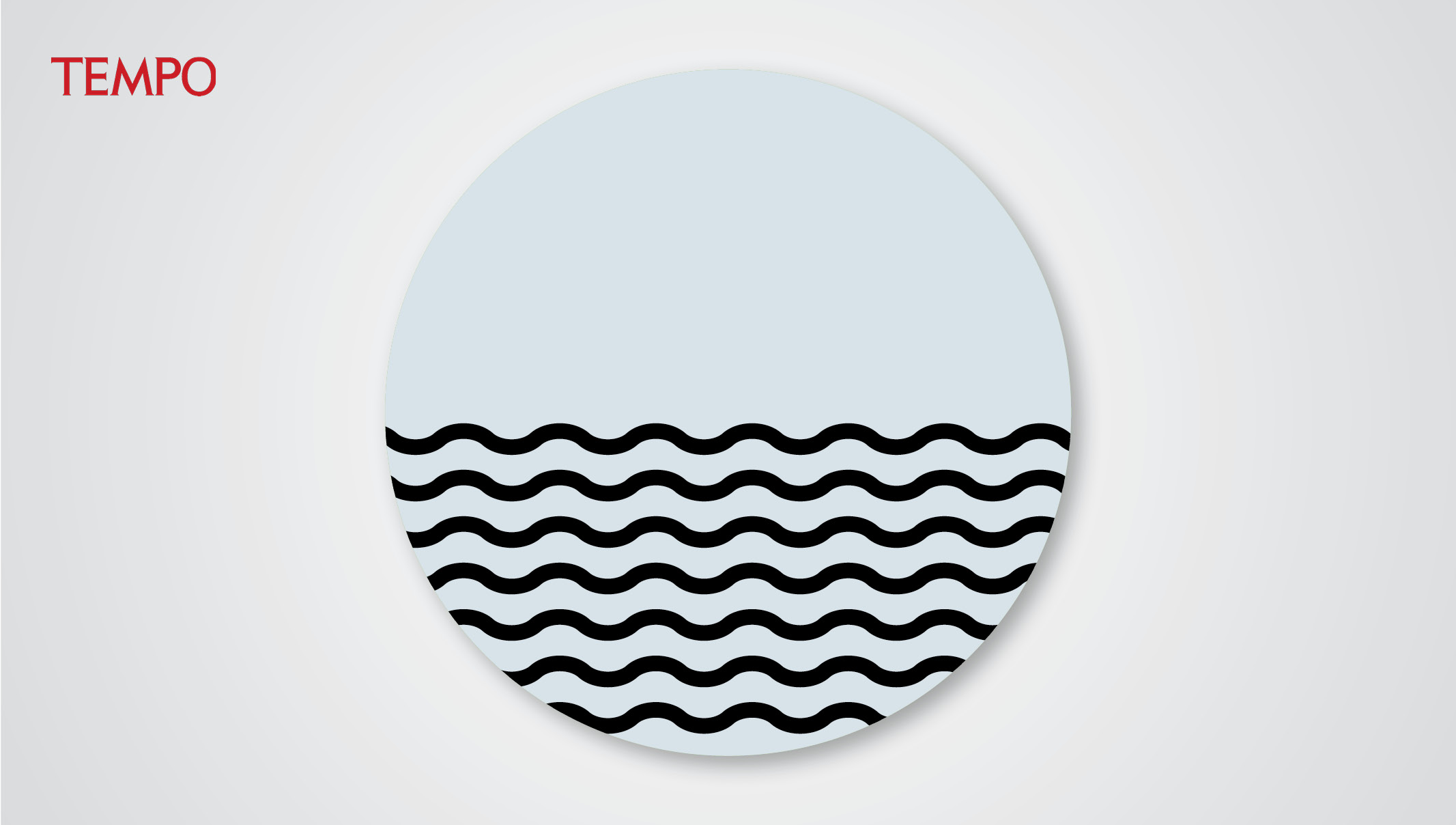The Poor Management of Indonesia’s Rivers
The Batanghari River is becoming increasingly polluted from illegal mining. This is a result of corruption and policies that ignore the environmental carrying capacity.
Tempo
December 23, 2024

IN the Batanghari River, corruption and abuses of authority have directly led to environmental destruction. The longest river in Sumatra is now in very poor condition because of uncontrolled exploitation. Dredging of sand, gold and coal mining, cultivation of trees and oil palm plantations—both legal and illegal—are the causes of this degradation.
The Batanghari river basin area, which stretches 800 kilometers from Mount Rasan in West Sumatra to Muara Sabak in Jambi, is now on the verge of collapse. In the last 10 years, according to the Jambi branch of the Indonesian Forum for the Environment (Walhi), illegal mining has increased significantly, and in 2023 was taking place in 437 locations. This illegal mining, which damages the ecosystem, involves officials, police and the military.
The incident in which police officers exchanged fire at the South Solok Police District, West Sumatra, two weeks ago proves that law enforcement officers are major backers of illegal mining. Chief of Operations at South Solok Police District, Adj. Comr. Dadang Iskandar, shot dead his colleague, Adj. Comr. Ulil Ryanto Anshar, Chief of the Criminal Investigation Unit, because he did not want his illegal business dealings to be investigated.
Dadang Iskandar may be just one of many police officers acting as protectors of illegal mining activities along the Batanghari river basin. For decades, illegal mining in the area has been left unchecked, protected by law enforcement officials. As a result, Indonesia’s second-largest river basin, with a catchment area of 4.9 million hectares, faces severe threats.
But this state of affairs has not deterred the government. In February 2024, the Jambi Regional Legislative Council supported the governor’s decision to designate the Batanghari River as a coal transportation route. They rejected the suggestion from the Energy and Mineral Resources Ministry to ban the use of barges on the river.
The Jambi government claims that allowing the river to be used as a coal transportation route will prevent congestion and accidents on the roads. Meanwhile, the Energy Ministry believes that the Batanghari River is now too polluted. Contamination from coal will worsen the condition of the water, which has already been contaminated by industrial waste discharged into it.
The damage to the Batanghari river basin area is a reflection of a fundamental problem with the implementation of regional autonomy. In order to protect regional income, local governments often issue permits for extractive industries to exploit rivers. Without considering spatial management and environmental carrying capacity, the Batanghari river basin, which is rich in gold reserves, will be excavated by mining companies. When the authority to manage the river basin area was transferred to the Environment and Forestry Ministry, illegal mining continued without any oversight.
The crisis in the Batanghari and other rivers was made worse with the implementation of the Job Creation Law. The removal of the requirement to retain 30 percent forest coverage in every river basin area means that rivers are even more vulnerable to exploitation. As a result, flooding, damage to the ecosystem, and corruption have become real threats for the river basin areas that support the livelihoods of local people.
If the government is really serious about promoting the forest restoration and rehabilitation program in international forums, improvements to the Batanghari river basin area must be a priority. Unfortunately, government policies, including those under President Prabowo Subianto, appear to favor oligarchies over improvements to river ecosystems.

